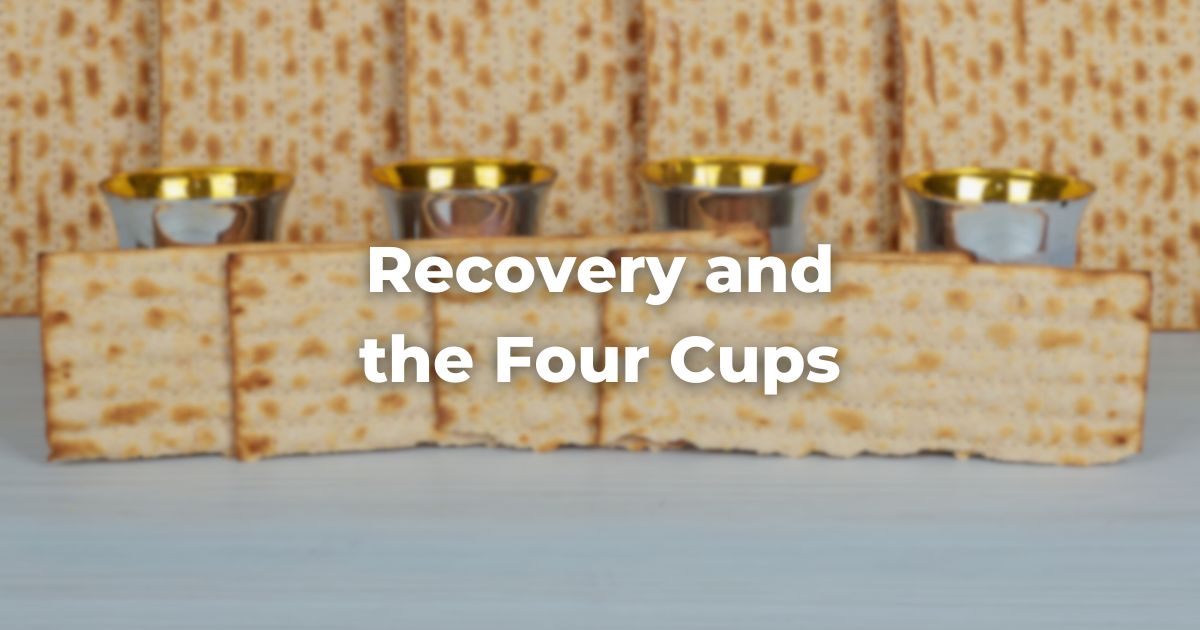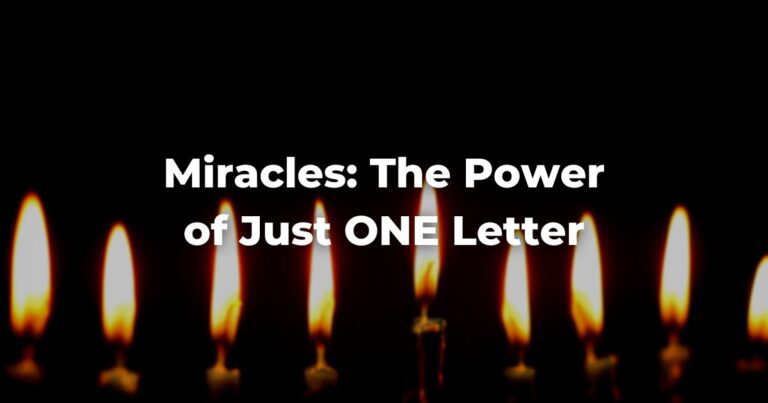Four cups of wine is excessive. It’s a whole bottle of wine per person—maybe not enough to blackout, but certainly too much to drive.
And for some of us, we wouldn’t stop at four.
In the Babylonian TalmudReferring to one of two collections, the Jerusalem and Babylonian Talmuds, edited in the 6th century, that contains hundreds of years of commentary, discussion, and exploration of the ideas in the Mishnah. One could describe it as Mishnah + Gemara = Talmud Read more (Pesachim 109b-110a), there is a long discussion about the practice of drinking four cups of wine. During the time of the early rabbis, it was considered bad luck to drink an even number of cups of wine. An even number of cups of wine would invite demons and expose the drinker to danger.
Alcoholics know these demons well. We’re experts in demons.
The Talmud responds to itself with a number of possible solutions: Rav Nahman said that Passover is a special night of protection when we are guarded from harmful spirits. Rava says the third cup, which would be drunk by itself during the Grace After Meals at any festival or occasion, is different during the seder and actually combines with the other cups for good spirits and not harmful ones. And Ravina says that the cups of wine are completely distinct from one another and that each cup is “expressive of freedom.”
This Talmudic discussion highlights something very important about these four cups of wine: They are meant to protect us from harm, combine for goodness, and essentially lead to freedom.
Halakha, Jewish law, points in the same direction. Rambam writes in the Mishneh TorahRefers to the first five books of the Hebrew Bible, the Tanakh, also called the Five Books of Moses, Pentateuch or the Hebrew equivalent, Humash. This is also called the Written Torah. The term may also refer to teachings that expound on Jewish tradition. Read more:
“A person who drank these four cups from wine which was not mixed [with water] has fulfilled the obligation to drink four cups of wine, but has not fulfilled the obligation to do so in a manner expressive of freedom. A person who drank these four cups of wine mixed [with water] at one time has fulfilled the obligation to drink wine in a manner expressive of freedom, but has not fulfilled the obligation of four cups of wine.”
In other words, we have two obligations:
- To drink four cups of wine.
- To drink in a manner expressive of freedom.
Rambam draws from Ravina to highlight that the very purpose of these four cups is freedom.
But if wine is not my freedom but my Pharaoh, how can I fulfill the obligation of four cups of wine?
How can I abstain while feeling free?
For most addicts, addiction begins as a solution to a problem. This solution feels like freedom: freedom from social anxiety, from physical pain, from traumatic experiences, etc. But then it becomes insidious:
“Whatever form the addiction may take, whether alcohol, drugs, sex, food, or gambling, it totally dominates the individual. Everything in life becomes subordinate to complying with the demands of the addiction. I have heard this from many recovery people, one of whom said, ‘It has been twenty-one years since I drank. I may drink today, but if I do it will be because I choose to do so. I am no longer compelled. When I was in. My addiction, I had no choice.’”
Rabbi Dr. Abraham J. Twerski, The Spiritual Self
Freedom is choice. Rabbi Twerski would say: a free moral choice.
We abstain from alcohol while feeling free because we abstain in a manner expressive of freedom.
Each cup of wine you don’t drink because you are an addict or because alcohol harms you or others is a free moral choice. If you are an addict and you drink, you give away your free moral choice. You reenter the slavery of addiction.
And each cup of grape juice is a cup of freedom.
Author
-

Rabbi Kerry Chaplin is a spiritual counselor, ritualist, and teacher, focusing on addiction and recovery, queerness, and parenting. She hosts gatherings for spiritual transformation and maintenance in her Los Angeles backyard.
View all posts






